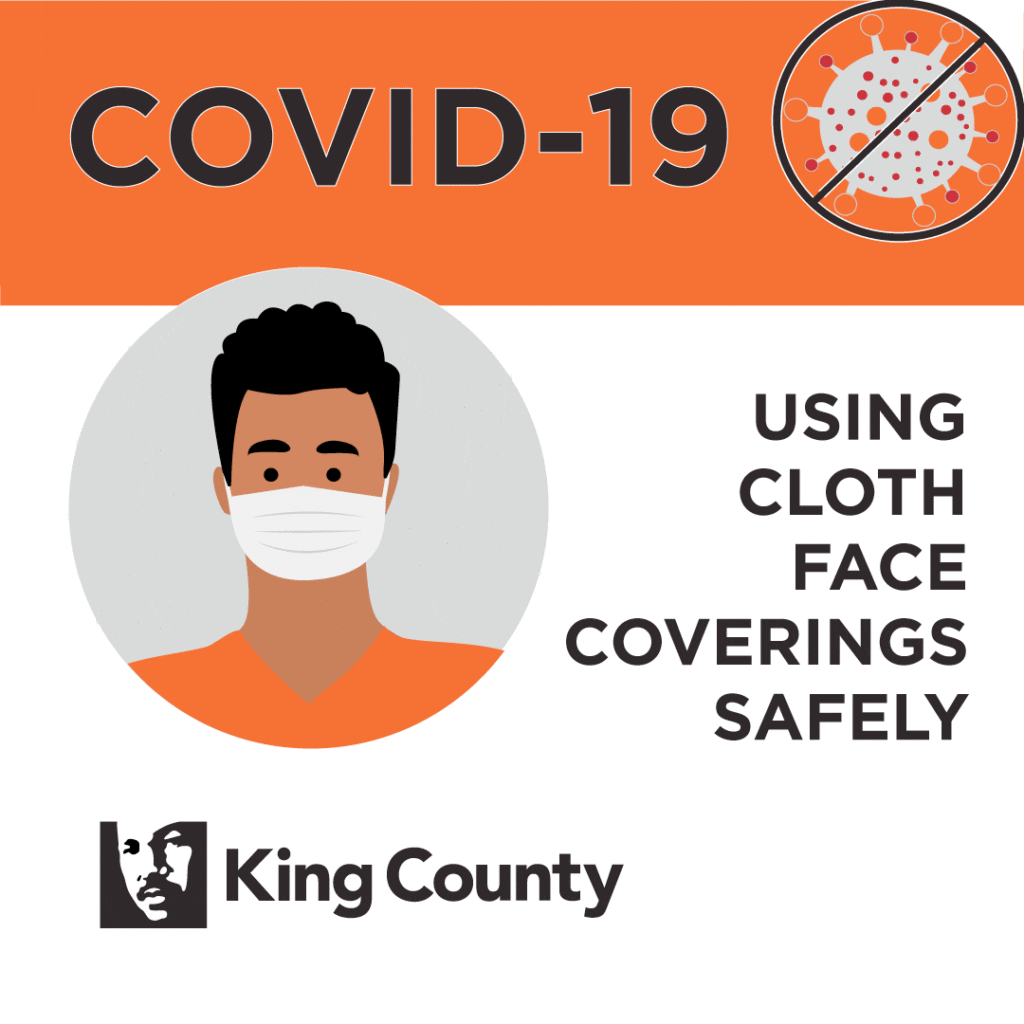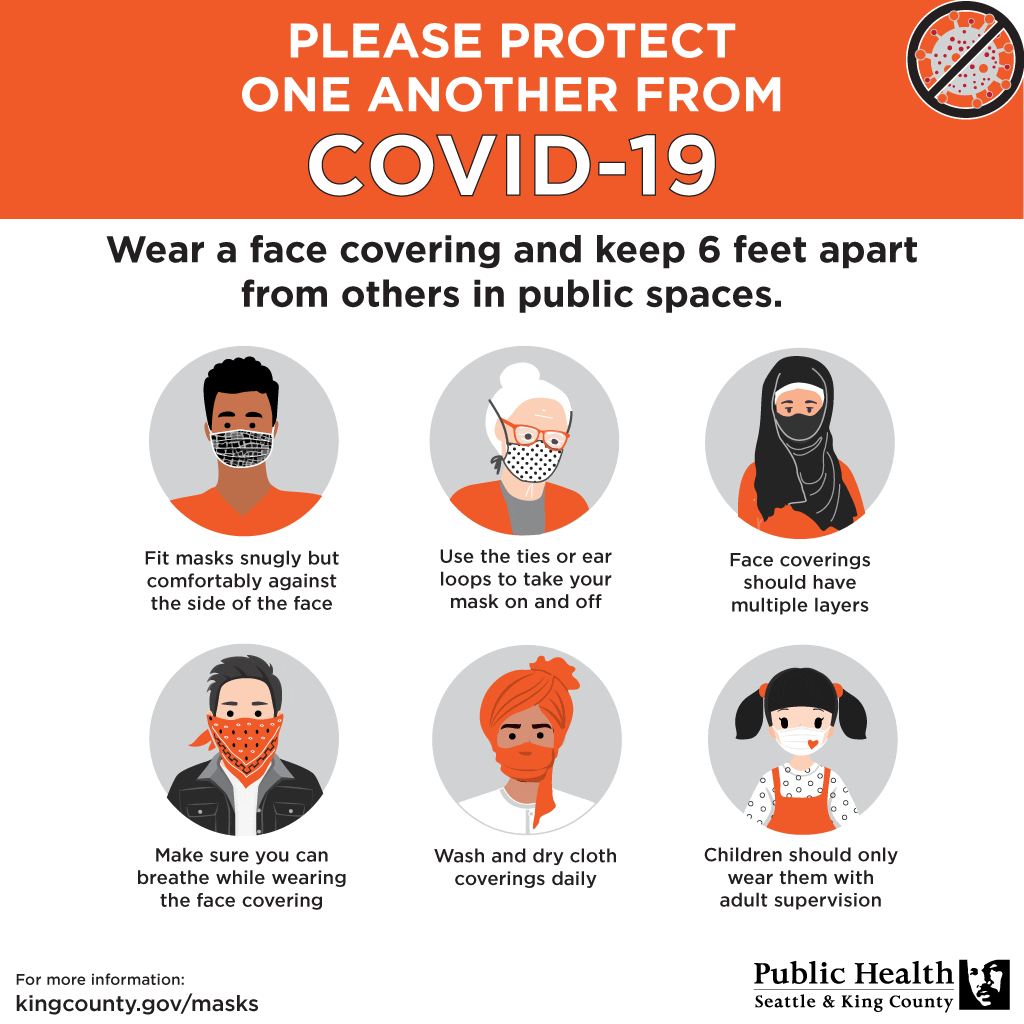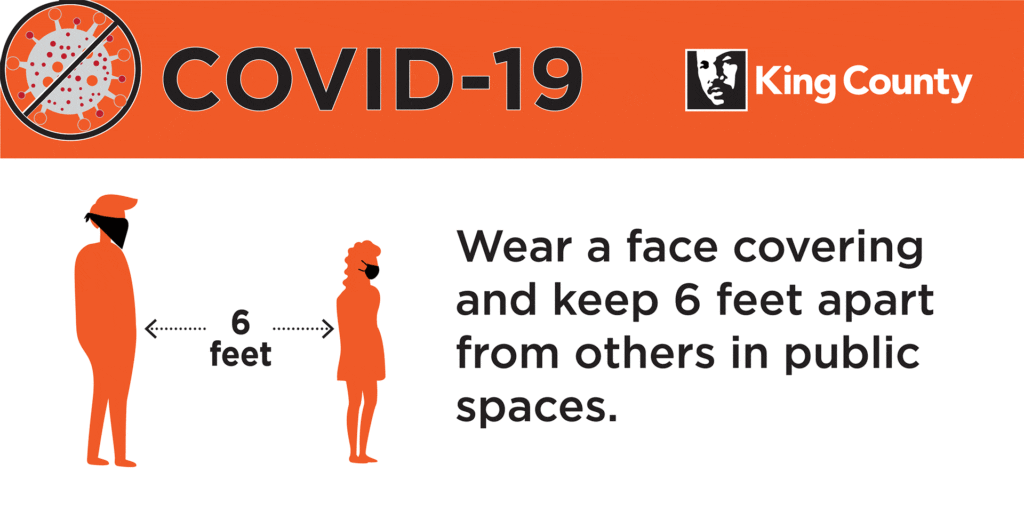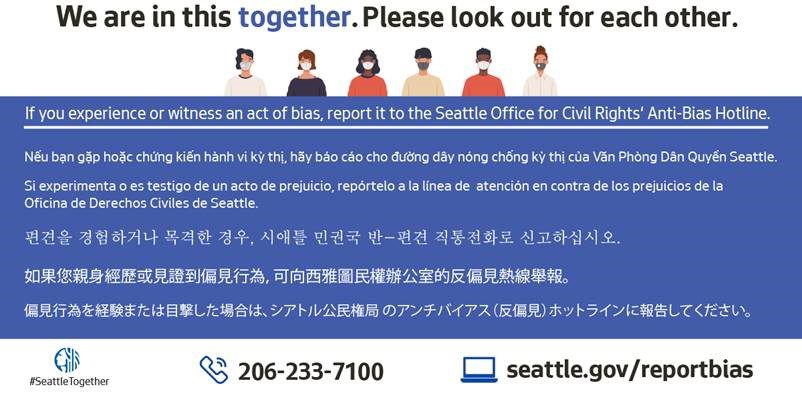Countywide Health Directive
Beginning May 18, 2020
.@KCPubHealth issued a countywide health directive instructing residents to wear cloth face coverings in confined public spaces. This effort is critical to slowing the spread of #COVID19 in our communities. Learn more: kingcounty.gov/masks
The @CDC recommends that people wear cloth face coverings to prevent inadvertently spreading #COVID19 while interacting with others outside their homes. We must continue to follow public health guidance to keep our communities safe and healthy.
Do you have questions about what the @KCPubHealth face covering directive means for you? Visit this website to learn about what the order means for you and your community, including where and when to wear a face covering: kingcounty.gov/masks
People who are deaf, hard of hearing, or otherwise rely on face and mouth movements to communicate are NOT required to wear a cloth face covering. Watch this video for more information: https://drive.google.com/file/d/1k8HBjyQ-0MgnixWaencJNkh-xHVhlmzU/view

City Masks, How to Help
@MayorJennyDurkan announced that the @CityofSeattle is providing 45,000 cloth face coverings to our most vulnerable community members, including people experiencing homelessness, older adults, and ethnic grocery stores and food banks. Learn more: https://bit.ly/2WrxvQt
Do you want to help sew or donate cloth face coverings for vulnerable communities, including people experiencing homelessness, older adults, and staff at food banks? Visit @UnitedWayKC’s portal to learn how to help: https://volunteer.uwkc.org/need/?tag=Face+Masks
What Is A Face Covering & How To Wear It
Cloth face coverings include cloth face masks, scarves, hijabs, and bandanas, or any homemade face covering made of cotton fabric. They should fit snugly, be easily washable and allow for easy breathing.

Where To Wear A Face Covering
Beginning May 18, all King County residents must wear a cloth face covering in indoor public spaces to slow the spread of #COVID19 and keep our essential workers safe. This includes:
- Grocery stores
- Restaurants and retail
- Indoor workplaces
- Buses
- Rideshare and taxis
How To Make A Face Covering
You don’t need to buy a cloth face covering – they can easily be made at home with any piece of cotton fabric! The @CDC has step-by-step instructions on how to make a cloth face covering here: https://www.cdc.gov/coronavirus/2019-ncov/prevent-getting-sick/diy-cloth-face-coverings.html
Face Covering + Social Distancing
Wearing a face covering does NOT replace good hygiene and social distancing. Please continue to wash your hands regularly and maintain six feet of distance between yourself and others in public spaces.

Don’t Discriminate
There are valid reasons why some people can’t wear face coverings. If you experience or witness harassment or an act of bias, report it to @SEACivil_Rights Anti-Bias hotline at 206-233-7100. You can also report online at seattle.gov/reportbias.

